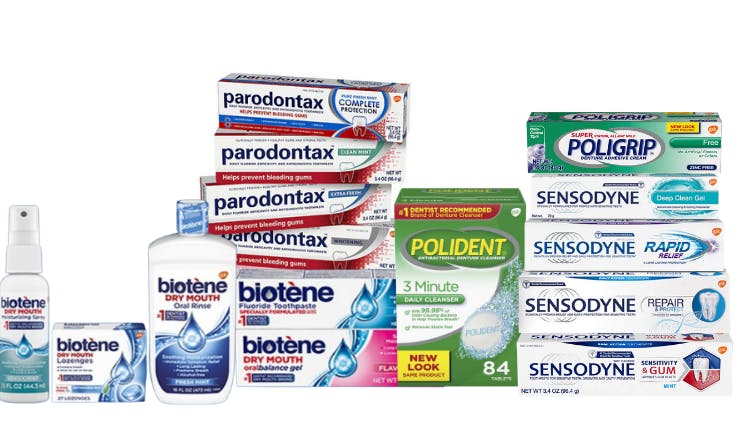Halitosis: Overview

Halitosis Overview
Halitosis, or bad breath, is a problem some patients face. Halitosis can be a source of embarrassment for patients.1 Halitosis may even trigger anxiety.1 Negative emotional impacts aside, there are other reasons why treating halitosis is necessary. Halitosis may result from improper or inconsistent dental hygiene on your patient’s behalf. As an oral health professional help to identify the cause of your patient’s halitosis and determine a course of treatment.
Halitosis Fast Facts
What is halitosis? “Halitosis” is simply another word for “bad breath".1
What percent of the population experiences halitosis? Studies show that nearly 50 percent of the adult population have experienced bad breath at some point in their life.2
What causes halitosis? Common causes of halitosis can include bad breath-causing bacteria, dry mouth, breath-offending foods, and tobacco products, as well as underlying medical conditions.2
What approaches can be used to diagnose halitosis? Organoleptic measurement, or detection of odor by smelling with the nose, is a simple way to diagnose halitosis.3 Other methods include gas chromatography sulfide monitoring, the BANA test, and chemical sensors.3
What methods can be used to manage halitosis in patients? Methods to manage halitosis can include scaling and root planning, instructions for daily oral hygiene, at home techniques, that could include, tongue cleaning, and mouth rinsing.3 Management will depend on the cause of the patient’s halitosis.
Etiology of Halitosis
In 85% of cases, halitosis originates in the oral cavity.3 The oral cavity is warm and moist, providing a suitable environment for bacterial growth.3 Bacteria produces malodorous compounds that can cause halitosis.3
In rare instances halitosis can be caused from an extraoral source.3 Respiratory system issues, gastrointestinal disease, and metabolic conditions can cause of halitosis.3
Causes of Halitosis
Halitosis can be caused by a number of factors. These factors include:
- Food: The breakdown of food particles in your mouth can increase bacteria and causes bad breath.
- Diet: Certain foods such as onions and garlic can cause halitosis.
- Tobacco products: Products such as cigarettes or chewing tobacco can lead to halitosis.
- Dry mouth: Saliva helps cleanse the mouth. For patients with dry mouth, halitosis may be an issue because saliva production is decreased and advice the patient to check with their healthcare professional.
- Medications. Certain medications can cause halitosis.
- Underlying oral health conditions: Oral health conditions such as tooth decay, gum disease, and mouth sores can cause halitosis.
- Other causes. Diseases, such as cancers and conditions associated with metabolic disorders can cause halitosis.1
Halitosis Treatment
Daily oral hygiene is the first step in helping with halitosis prevention and treatment. Ask patients with halitosis about their oral health routine, and help ensure they have the tools and resources they need to help them care for their teeth and gum health. Best to instruct your patients to do the following as part of their oral health routine:
- Brush twice a day, for at least 2 minutes at a time
- Floss once a day.
- Use an antibacterial mouthwash4
If dry mouth is the cause of your patients halitosis, it is suggested to ask them about their daily water intake and encourage them to drink more water if needed.4 It is suggested to inform patients about foods and other products that can cause dry mouth, such as alcohol, that could possible be the cause of the patient's halitosis. caffeine, and tobacco.4 Help by educating patients about products that can help with dry mouth, such as Biotene Dry Mouth Gentle rinse. The biotene rinse, gel and spray are clinically proven to soothe and moisturize a dry mouth for fast, long-lasting symptom relief. The biotene lozenge is also available to help freshen breath on the go.
As discussed above, certain foods can cause halitosis, including onions and garlic. Talk with your patients about foods that cause bad breath and ways to limit or manage intake of these foods.
In addition, ask patients to schedule a dental visit to help monitor oral health issues and assist with treating any existing conditions before they could get worse.
If halitosis is determined to be the cause of by a more serious oral health condition such as tooth decay or gum disease, instructions for treatment could vary. Consult our resources for more information about treatment for other oral health conditions.
